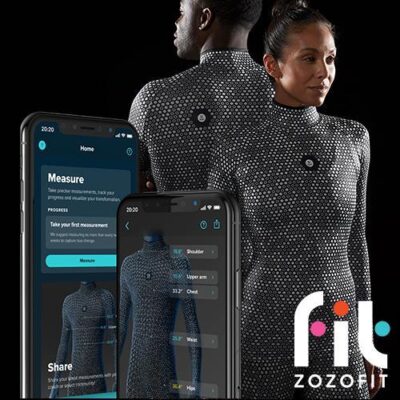Data-driven technology is helping banks and merchants counter fraudulent transactions and chargebacks.
In October 2017, the European Banking Association closed its consultation on draft guidelines for reporting fraud under revised PSD2. With more than 5,000 cases of fraud reported every day in Britain in the first half of 2017 (according to recent research by Barclays), banking fraud is a mounting problem and one of the most challenging issues facing the industry today. Coupled with the new reporting requirements brought by PSD2, this situation is prompting many banks to rethink their fraud prevention and intervention provisions, and to update their defences against all types of financial fraud.
“Risks are shifting with every new digital banking innovation. As a result of this, banks are turning to digital means to reduce fraud”, says Steve Morgan from Global Business Process Outsourcing firm Intelenet. “Machine learning is increasingly being applied to help speed up the resolution process, resulting in improved customer support for those who have fallen prey to fraud”.
Models like Google search have proven that feeding more data of size and breadth into an algorithm leads to greater performance than simply trying to optimise the model itself. It is no surprise, therefore, that the leveraging of large, diverse and rapidly changing datasets should make a big difference in fraud detection. The storage, analysis and sharing (in real time) of big data can turn the tide on fraudsters.
Banking fraud is a mounting problem and one of the most challenging issues facing the industry today Click To TweetIn 2016 at the Retail Risk conference in London, the Chief Constable of the National Police Chiefs council for Business Crime Reduction, Susannah Fish, had also highlighted the growing importance of tackling fraud in the sector, by giving her support for a crime data-sharing platform, the National Business Crime Solution (NBCS). The platform subsequently won the Best Crime Partnership of the Year at the Retail Fraud Awards, and in December of the same year – in recognition of their work and success – the Home Office agreed to fund expansion of the NBCS via the Police Transformation Fund.
The storage, analysis and sharing (in real time) of big data can turn the tide on fraudsters Click To TweetThe NBCS’s first end-of-year report provided a solid evidence base on the value of combining data and intelligence, and clearly lays out the case for the benefits of effective and timely data sharing in the context of tackling and preventing various strains of fraud-related crimes.
The NBCS has proven so successful because it enables the effective sharing of appropriate data between the police, crime reduction agencies, and the business community to reduce crime and subsequent risks to all. Sitting above other commercial intelligence hubs, as an independent ‘not-for-profit’ unit, helps maximise the value of all the business data before submitting it to law enforcement through a single data-sharing agreement. Rather than numerous hubs with differing data, the group aims for a central data source that can be shared to best effect incomplete or localized. This is an approach that is being widely adopted across all areas of fraud prevention by both banks and merchants.
The NBCS’s report provided evidence on the value of combining data and intelligence, laying out the case for the benefits of effective and timely data sharing in preventing fraud-related crimes Click To TweetMerchants and banks lose billions every year to online fraud and chargebacks. But what are credit card chargebacks? Generally, when a customer sees a transaction on their bank statement that they don’t recognise, they may challenge that it was in fact a legitimate purchase that they made, often requesting that the charge be refunded. These disputes often lead to a refund, or chargeback, being issued. This is especially convenient to customers and issuing banks, when the alternative is an in-depth investigation in the face of little data to establish whether the transaction actually took place.
Merchants and banks lose billions every year to online fraud and chargebacks Click To TweetSometimes these cardholder services disputes arise from a genuine concern by the shopper, which can be a sign that their account details may have been compromised. However, sometimes consumers will illegitimately dispute a transaction, more often than not going directly to the bank rather than the original merchant. This leads to loss of revenue, merchandise, and shipping costs to merchants, who have to cover any additional fines and fees applied by the bank, as well as being affected by potential long-term damage to customer relations.
Sometimes consumers will illegitimately dispute a transaction, more often than not going directly to the bank rather than the original merchant Click To TweetWhile the term ‘friendly fraud’ may seem innocuous enough, this rising problem has a high impact on the business community, with current estimates suggesting that financial impact of chargebacks could reach close to $30 billion globally by 2020. In fact, according to a 2015 report by Javelin Research on the impact of fraud and chargebacks, management of the issue consumes a significant percentage of resources (between 13% and 20%) within organizations. In the UK, fraud and cybercrime cost the economy nearly £11 billion last year, according to Action Fraud.
Today’s dispute process creates many challenges, as many more channels are open for customers to easily make purchases Click To TweetToday’s dispute process creates many challenges, as many more channels are open for customers to easily make purchases. This brings convenience but also much more room for potential misinformation, miscommunication, and fraud. Common cases include so-called “buyer remorse”, automatic renewal of subscriptions, or children using a parent’s account to buy gaming content online without consent. Often, the merchant’s name as it appears on a statement doesn’t match their trading name, making it more likely that forgetful or confused customers will dispute any given transaction.
While the term friendly fraud may seem innocuous enough, this rising problem has a high impact on the business community Click To TweetIn order to address this problem and assess with reliable accuracy whether a dispute is legitimate or not, it is crucial for issuers to have access to data and that the outcomes be shared with the merchants promptly for resolution, before disputes escalate and create costly chargeback problems.
“Shared data can be beneficial in multiple fraud scenarios, and friendly fraud is no exception. I’ve been hearing from e-commerce merchants in the app and gaming environment that friendly fraud is just going through the roof, representing as much as 75% of all their card-not-present chargebacks”, explains Julie Conroy, from Boston-based analyst firm Aite Group.
This represents a serious problem for the industry as a whole, but it is ultimately the consumer who bears the cost. To tackle these issues effectively, technology needs to align itself with the interests of cardholders, banks, and merchants and bridge information timing to when the customer initiates the dispute.
“The amount, timeliness and depth of data that a party in the payments eco-system acquires to associate a transaction with a customer, and what that customer divulges during the purchasing experience, allows us to make the best-informed decision”. – Matthew Katz, CEO of Verifi, a leading global provider of end-to-end payment and risk management and card not present fraud and chargeback solutions.
In April 2017, Verifi launched Order Insight, an advanced collaboration platform that applies this principle of connecting merchants, issuers and cardholders to access accurate and timely data to the benefit of all. Alongside this solution is Verifi’s Cardholder Dispute Resolution Network (CDRN), which enables issuers at the initiation of a dispute to redirect consumer disputes to the merchant, pausing the chargeback process for up to 72 hours, allowing the merchant time to assess and resolve the issue appropriately before becoming a chargeback.
Verifi launched Order Insight, an advanced collaboration platform connects merchants, issuers and cardholders to access accurate and timely data to the benefit of all Click To TweetOrder Insight enables near real-time sharing of the transaction details between cardholders, merchants and issuers, providing detailed information for the customers to act upon disputed transactions, and for merchants to have the ability to challenge and deflect chargebacks. Thus, whenever a dispute arises, each party will have access to the information to eliminate customer confusion, provide an improved customer experience, and determine the legitimacy of the sale, reducing the impact of issues such as friendly fraud.
“Order Insight is the next phase of our services evolution, where all parties are connected working together for mutual benefit”, adds Katz. “By being able to share and access data – such as purchase item description (size, colour, style), date of purchase, merchant’s name and contact information, customer’s device used, IP address, etc. – the volume of chargebacks can be significantly reduced. This results in fewer fees and penalties imposed on merchants, but most importantly the retention of sales and improved customer relations, all of which translate into increased profits”.
All businesses want to derive insights from leveraging big data in order to make better, smarter, real-time and fact-based decisions, especially when it comes to dispute resolution. Companies that both invest in and derive value from their data already have a huge advantage over their competitors. A key success factor in achieving this, however, is the availability of the right data at the right time. Businesses need to know what decisions need to be made, when to take action, and how these actions will impact their business.
Shared data can be beneficial in multiple fraud scenarios Click To TweetAs fraudsters have gone digital, banks and merchants are discovering very quickly that the best way to combat online fraud is to develop machine learning programs. This allows organisations to leverage data – large, varying and fast-changing datasets – to enable the extraction of insights, either as visualisations for consumption or as predictive computer models for consumption. Fraud detection – whether true fraud or ‘friendly’ fraud – is a predictive analytics issue. Predictive analytics techniques work by extracting patterns from past data to predict the future. Traditional predictive models, which assume that what was accurate last year will also be accurate this year, are limited by nature. You can only optimise a mathematical model so much. For such models to be effective requires accurate, timely, and extremely broad data. To increase the accuracy of a model requires more data with greater size and breath. Banks and merchants constantly collect a great deal of data from their customers, via multiple channels such as service preferences, transactions, blogs, feedback and surveys.
As fraudsters have gone digital, banks and merchants are discovering very quickly that the best way to combat online fraud is to develop machine learning programs Click To TweetVerifi’s Order Insight allows issuers and merchants to share detailed order information in near real-time at the initiation of a customer dispute. Apart from the goods or services in dispute, detailed information on the cardholder’s transaction history, previous disputes filed, refunds issued, and account delinquency may also be available. The device (and type) that was used to make the purchase may be accessible, in addition to the name, username, IP address, location, phone number and email address included in the merchant’s customer profile to match the unique cardholder information with the bank’s system. Customers, too, have access to their order details through the issuer-hosted mobile or online banking application, providing immediate answers to a transaction query for a quick and painless resolution. If a transaction isn’t recognised, then the name, address, customer service number and email address, as well as terms and conditions, warranty information and return policies, may be provided to resolve the confusion created by vague descriptions on a statement.
Leveraging of big data is not all about purely saving money and addressing the economics of fraud. It can generate and preserve consumer confidence and loyalty Click To TweetWith this robust information to hand at the rise of a customer-disputed transaction, issuers can quickly determine if the transaction should be flagged as fraud or accepted as a legitimate transaction. Data sharing can thus greatly benefit issuer and merchant, preventing costly chargebacks, loss of merchandise, and fees, which can lead to increased confidence and profits for the merchant as well, as saving banks both time and unnecessary expense of call centre investigation and office operations to facilitate the chargeback process.
With robust information to hand at the rise of a customer-disputed transaction, issuers can determine if the transaction should be flagged as fraud or accepted as legitimate Click To TweetBut this leveraging of big data is not all about purely saving money and addressing the economics of fraud. It can generate and preserve consumer confidence and loyalty. Real-time data sharing helps resolve disputes the moment they occur, which, apart from avoiding loss of profits and resources, can help to preserve and even increase customer trust, loyalty and retention. The shared feedback loop between merchant, cardholder, and the issuer allows for an overall better customer experience.
Originally published on World Commerce Review
Alice Bonasio is a VR Consultant and Tech Trends’ Editor in Chief. She also regularly writes for Fast Company, Ars Technica, Quartz, Wired and others. Connect with her on LinkedIn and follow @alicebonasio on Twitter.









